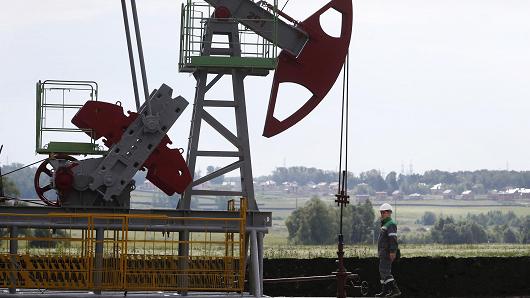Oil outages speeding up new world energy order
2016-05-18
The world's oil market is rebalancing faster than expected due to several serious outages, but for now there is enough oil in storage and excess capacity to keep prices from spiking.
"We've strung together an impressive number of outages and supply disruptions for the moment, but there's every incentive in the dire straits the industry's been in to get these barrels on line," said John Kilduff, partner with Again Capital.
Outages and supply disruptions in Canada, Nigeria, Venezuela, and other producing regions have reduced oil production by an estimated 3.8 million barrels a day. Some of those outages should be temporary, and could bring a wall of oil back to the market once they are resolved. There is also the potential for more production from Saudi Arabia, Iran and even the U.S. - if prices rise enough to enable America's shale producers to restart some drilling.
"Some of it's temporary, and if it goes on long enough, there will be longer lasting implications," said Michael Cohen, head of energy commodities research at Barclays. In Canada, an estimated 1.2 million barrels a day are offline due to forest fires in Alberta. The uncontrolled fire, covering 704,000 acres, moved toward energy production facilities Tuesday, after jumping a fire break area, according to Reuters.
Suncor shut down its base plant, and said it had not sustained any damage, while Enbridge's Cheecham crude tank farm was less than a mile away from fire but fire fighters had the fire under control, according to Reuters.
"This is bad," said Cohen, adding it's the biggest disruption in North America since Hurricane Ike in 2008. "It looks like it's getting worse before it gets any better...It's hard to say. Is it two weeks? Is it four weeks? If it goes on for another two weeks we're going to have some medium term implications for some of the projects up there."
The industry had been hopeful the fires would be out and they would start sending workers back to their jobs just several days ago. "We had this big U-turn in events over the past 48 hours," said Jackie Forrest, vice president energy research at Arc Financial Corp. "It's getting difficult to predict when this wild fire will be put out." She said the fact it has moved north means it will take longer for the industry to restart oil sands production, now down by about 50 percent.
The Canadian situation is different from other outages in that it is seen as a short-term problem, due to an act of nature, and while uncertain, the situations in Nigeria or Venezuela could be harder to predict.
In Nigeria, militants have knocked oil production offline as the country struggles with the impact of lower oil prices on its economy.
"If Nigeria goes offline, it's sticky. These armed militants are very intent on shutting down production. They have the capacity to do so," said Helima Croft, head of commodities research at RBC Capital Markets.
Venezuela is another trouble spot, politically and economically. It is producing about 2.3 million barrels a day, but analysts see it as in a state of decline.
Kolanky
